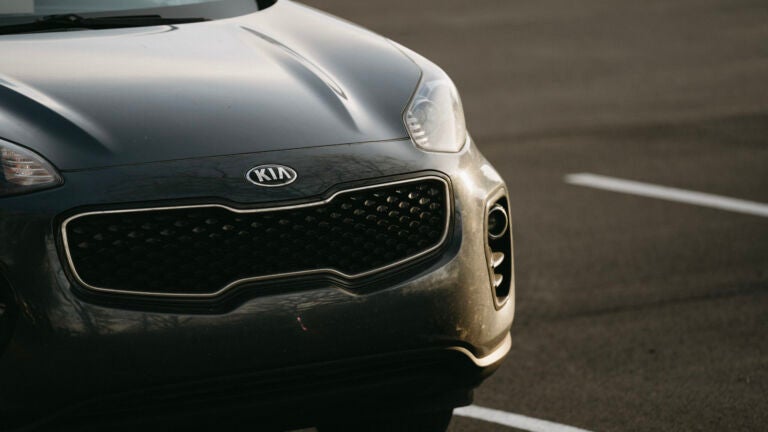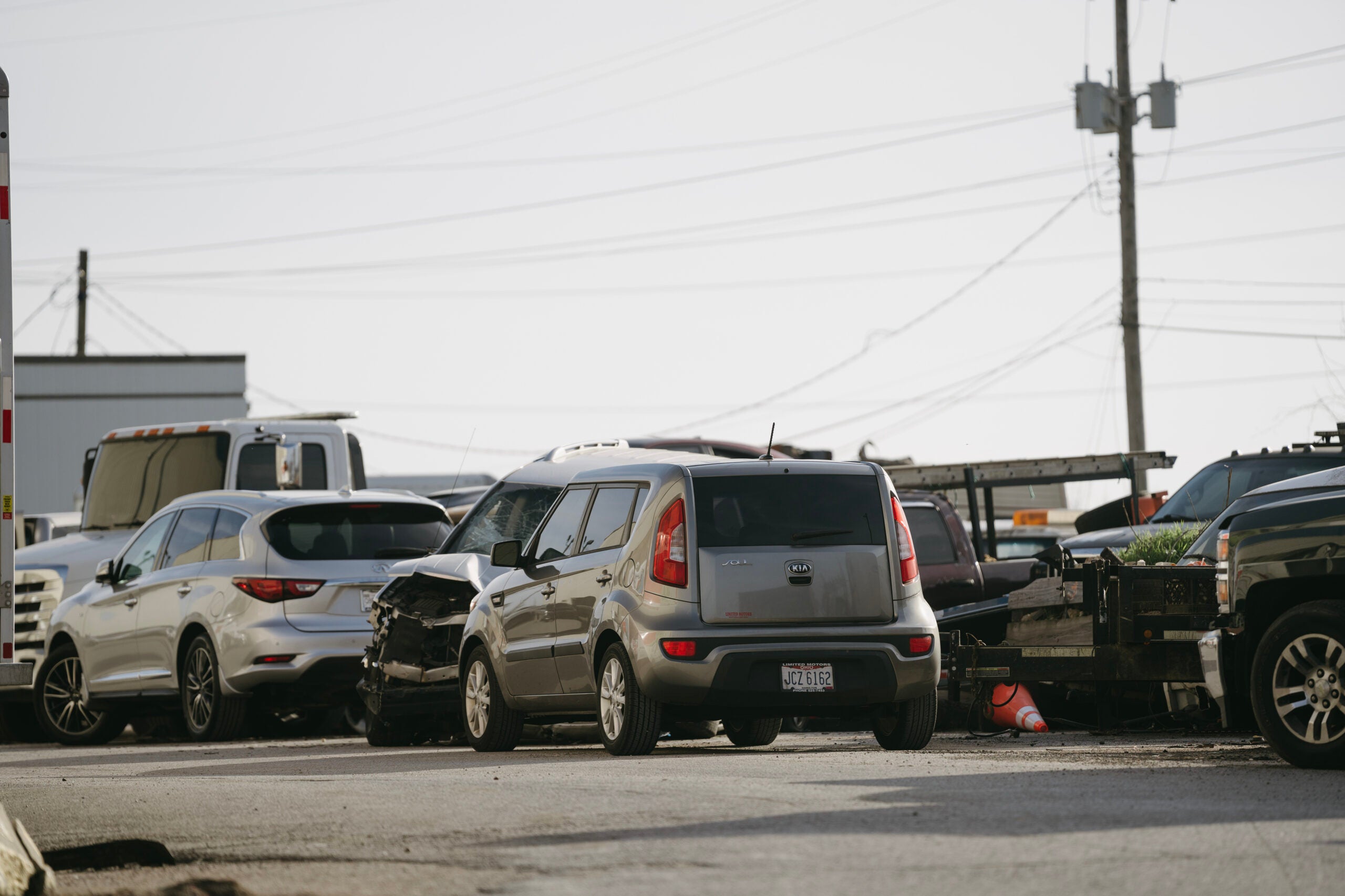
Skip to Main Content
Crime
“We know that a lot of our young people are breaking into cars and stealing cars as almost a dare, or a trend, right now…They are finding it easy to do.”

By Tim Arango and Jacey Fortin, New York Times Service
One of the busiest places in Memphis, Tennessee, these days is the impound lot north of downtown, where tow-truck drivers can sit in line for more than six hours to make drop-offs, victims can wait weeks to get stolen vehicles back and some 2,700 cars are squeezed onto the grounds of an old farm-equipment factory.
The overcrowding is the result in part of an auto theft boom that has gripped Memphis and other U.S. cities. Vehicles from two manufacturers, Kia and Hyundai, have proved especially vulnerable to theft, prompting cities to file lawsuits against the carmakers and at least one state’s attorney general to open an investigation.
Of the nearly 11,000 cars stolen in Memphis last year — about twice as many as in 2021 — roughly one-third were late-model Kias and Hyundais, according to police. It doesn’t take much to rip them off: just a screwdriver, a USB cord and hot-wiring know-how found in videos proliferating on social media.
Many of the culprits are teenagers or young adults stealing cars for kicks or to use them for other crimes, such as robberies, police say. More than half of the 175 people arrested and accused of car theft this year in Memphis were teenagers, who often abandon the vehicles after a joyride.
“We know that a lot of our young people are breaking into cars and stealing cars as almost a dare, or a trend, right now,” Cerelyn J. Davis, the Memphis police chief, told the City Council at a recent meeting. “They are finding it easy to do.”
U.S. cities have faced a rise in car thefts during the coronavirus pandemic. Some other categories of crime, including homicides and aggravated assaults, rose nationally in 2020 and 2021 and then declined somewhat last year, though they remain above prepandemic levels, according to data collected by the nonpartisan Council on Criminal Justice.
But auto thefts have continued to rise, even as other forms of lawbreaking have leveled out or fallen.
Early in the pandemic, experts who study crime say, more vehicles were stolen partly because people were staying home: Cars were left on streets during the day, rather than in secure parking lots near offices. But the surge has continued, fueled in part by social media videos that show, step by step, how to steal Kias and Hyundais that are not equipped with an engine immobilizer — an electronic security device that keeps a car from being started without a key.
“All you had to do was put something on TikTok, how to steal these cars, and they started getting stolen left and right,” Sen. Chuck Schumer, D-N.Y., said at a news conference last week in Buffalo, New York, where he brandished a USB cord while standing next to recent auto theft victims.
The two Korean car brands, part of the same conglomerate, are increasingly popular in America, accounting for about one-tenth of U.S. auto sales last year. They recently issued statements saying they had fixed the problem that makes their vehicles relatively easy to steal in their latest models, and were introducing free software upgrades for vulnerable cars — about 4.5 million Kias and 3.8 million Hyundais, the federal government estimated.
At the same time, the companies have shipped steering wheel locks to police departments across the country, to be provided free of charge to car owners who drive at-risk models. And executives say they are constantly monitoring TikTok and YouTube for new videos that show how to steal their vehicles, and then alerting the social media companies so those videos can be removed. Kia said in a statement that it was “committed to supporting law enforcement and owners in addressing these crimes.”

Lucy Garrett/The New York Times
Representatives for YouTube and TikTok said the companies had removed several videos related to what is known as the “Kia Challenge” in recent months. YouTube said in a statement that it might allow some of the videos to remain if “they’re meant to be educational, documentary, scientific or artistic.” A TikTok spokesperson said the social network “does not condone this behavior, which violates our policies and will be removed if found on our platform.”
Julie Garcia of San Antonio said she knew her Kia Sportage was vulnerable to theft, but she hoped it would not be attractive to thieves because the rear bumper was damaged. She also parked in view of security cameras whenever she could.
“It’s a scary feeling,” she said, “not knowing if your car’s going to be there or not.”
But on an afternoon in late December, Garcia found shards of glass on the ground where she had parked. It took the police two days to track down her Sportage. When she retrieved it, she found her steering column ripped apart, a window smashed and trash, including deli meat, strewn inside.
James Lint, a lieutenant with the San Antonio Police Department, said such destruction was common among stolen vehicles. “It’s not often we get them back in good condition,” he said. “They are torn up, ripped up, marked on, painted on.”
Garcia, 31, is now warning anyone she knows who owns a Kia.
“I’m just trying to spread awareness,” she said. “Because I don’t want what happened to me to happen to somebody else.”
Officials say the social media-driven rise in Kia and Hyundai thefts began about two years ago in Milwaukee, and then spread nationwide. City attorneys for Seattle and Columbus, Ohio, recently sued the automakers for not installing anti-theft technology, and other cities, including Cleveland, Milwaukee and St. Louis, have threatened litigation.
This week, Minnesota’s attorney general, Keith Ellison, said he was investigating whether the companies had violated his state’s consumer protection and public nuisance laws. “The drastic increase in Kia and Hyundai vehicle thefts is continuing to threaten public safety and do serious harm to our communities,” he said in a statement.
The car-theft surge has been the most persistent and wide-ranging crime trend in America during the pandemic, affecting jurisdictions large and small.
In the 30 major cities examined by the Council on Criminal Justice, motor vehicle thefts were up 21% last year from 2021 — resulting in an estimated 37,560 more stolen cars in those places. This followed double-digit increases in 2020 and 2021. (Carjackings, categorized as a violent crime and counted separately, have also risen in some cities.)
Richard Rosenfeld, a criminologist at the University of Missouri and the lead author of the council’s report, said the social media phenomenon was only part of the problem. “There is no definitive explanation for this large and sustained increase in motor vehicle theft,” he said. “It seems, in my view, to have taken on the characteristic of something like a contagion.”
Sometimes, officials say, the stolen cars are linked to other crimes, deadly crashes and even vigilantism, as car-theft victims take matters into their own hands after locating their vehicles with trackers.
In St. Louis last year, the drivers of two stolen cars — one a Hyundai, the other a Kia — were involved in a shootout at a busy intersection near downtown, leaving a 17-year-old with a gunshot wound. And a woman in St. Louis County was charged with murder after police said she tracked down her stolen Hyundai in late December and killed two men.
In Buffalo, four teenagers riding in a stolen Kia were killed in October when they crashed into a wall on an expressway and flew through the car’s glass roof. And Ellison, the Minnesota attorney general, said that stolen Kias and Hyundais in Minneapolis were linked to five homicides, 13 shootings, 36 robberies and 265 vehicle accidents last year.
Columbus, which has sued both carmakers to recoup the costs in city resources devoted to dealing with the rise in thefts, is seeing an average of 17 Kias and Hyundais stolen each day, said Zach Klein, the city attorney.
“These are used cars that a lot of retail and middle-class workers drive,” he said, adding that there was “this cascading effect not only to law enforcement that are dealing with it but also to the everyday citizens in our community that are the victims of these crimes and then don’t have an alternative vehicle to get to work.”
Owners of Kias and Hyundais have taken to cautioning one another to be on the lookout. On the week before Christmas, Tylar Talkington was leaving her apartment in Phoenix to buy ice cream when she found her Kia Soul missing. On the ground where she had parked it was a grapefruit-size rock amid shards of glass.
Talkington, 33, filed a police report. When she told her family what had happened, she learned about the social media trend. “I guess there’s a TikTok challenge going around — the Kia boys, they call themselves — just showing you how to commit grand theft auto, online,” she said.
She left a note on a neighbor’s Kia, warning her about the theft. The next night, after retrieving her car, with its steering column ripped open and its interior a mess, Talkington saw that her neighbor’s car was missing.
“There was another police car in the apartment complex,” she said. “And a pile of broken glass where my neighbor’s car should have been.”
This article originally appeared in The New York Times.
Boston.com Tonight
Sign up to receive the latest headlines in your inbox, every night.

Blogger Comment
Facebook Comment